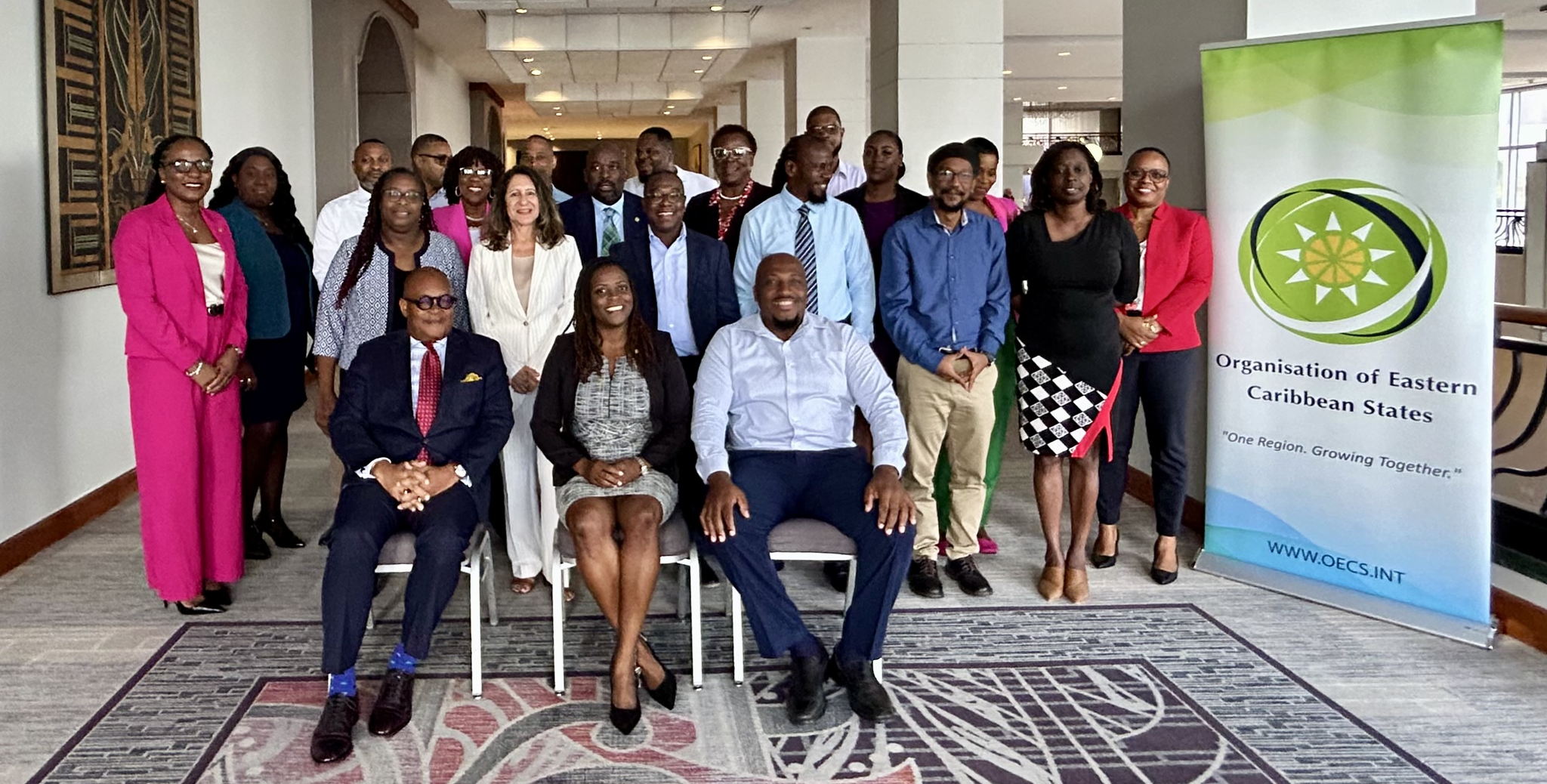OECS Hosts 5th Regional Data Governance Council Meeting to Advance Data-Driven Development
OECS Media Release
The Organisation of Eastern Caribbean States (OECS) Commission successfully concluded the 5th Meeting of the Regional Data Governance Council (RDGC), held from October 7-10, 2025. Over the course of four days, Directors of Statistics from OECS Member States, regional institutions, and international development partners came together to strengthen collaboration, enhance statistical capacity, and reinforce data-driven decision-making across the region
Mr. Corneil Williams, Chairperson of the RDGC, welcomed delegates and highlighted the importance of harmonized approaches to data collection and governance. The meeting opened with remarks from key leaders and partners, each of whom underscored the significance of data governance to advancing sustainable development in the OECS.
Dr. Didacus Jules, Director General of the OECS Commission, reiterated the Commission’s commitment to strengthening statistical systems as a foundation for evidence-based policymaking.
“We are effectively seeking to build a culture of data for development. Technology and systems alone will not suffice. Transformation lies in mindset, in building a culture of data use and trust. We must commit to and train our people to collect, interpret, and act on data. The RDGC must continue to champion coherence, avoid duplication, and turn national initiatives into regional strengths.
Integration is not only about treaties, it is about shared understanding. Data gives us that understanding, allowing us to speak the same language of facts, see through the same lens of evidence, and act with conviction of purpose. Let this fifth meeting mark a shift from data collection to data conviction, from information to insight, and from insight to impact.”
Mr. Elbert Ellis, representing the Caribbean Development Bank (CDB), reaffirmed the Bank’s partnership in advancing regional initiatives, including the Enhanced Country Poverty Assessment (eCPA).
“The Caribbean Development Bank has long recognised that strong data systems are foundational to sustainable development. Through our Enhanced Country Poverty Assessment (eCPA) Programme, CDB continues to serve as a strategic partner in supporting the Data for Decision-Making Project.
Our shared objective is simple but powerful: to ensure that every Member State has the capacity, tools, and governance frameworks needed to generate reliable data that can be transformed into actionable interventions to support sustainable development. The ultimate goal is to create a culture of evidence-based policymaking across the region.
Under this partnership, the Caribbean Development Bank has provided both technical and financial support to advance data governance, strengthen institutional frameworks, and promote the use of modern technologies in data management and dissemination. We see this as part of our broader mandate to enhance development effectiveness across the Caribbean.”
Ms. Anna Luisa Paffhausen of the World Bank underscored the Bank’s collaboration with the OECS through the Data for Decision Making (DDM) Project.
“This fifth meeting, particularly, is a very important one as it sets out to determine the methodology for anonymizing core datasets. This will directly support the data dissemination efforts of countries in the region, leveraging economies of scale. We hope that this will contribute to increased analysis of data produced in the region, helping countries to address key policy and development priorities.
Looking ahead, we hope that the RDGC will also decide shortly on the procedures and requirements for making the anonymized data accessible via the OECS Micro Data Catalogue. This will be an important milestone in promoting data-driven decision making across member countries.”
Ms. Sherma Beroo, OECS Data for Decision Making (DDM) Project Manager, highlighted the importance of the key items on the agenda for the 5th meeting of the council.
“Over the next few days, we will reflect on our ongoing initiatives, discuss strategic directions, and work towards fostering stronger partnerships. Our shared goal is to ensure that our data systems are robust, harmonized, and capable of supporting sound policies and sustainable development in our region.
The primary objectives of this meeting are focused and deliberate. First, we want to review the progress made in our regional and national data collection, analysis, and dissemination efforts. It is crucial that we understand where we stand across these areas to identify successes and areas needing further support.”
Key Discussions and Outcomes
During the meeting, participants:
- Reviewed progress on regional and national statistical initiatives.
- Shared updates on flagship projects such as the DDM, CARDTP, and eCPA.
- Discussed strategies for data anonymization and harmonized Labour Force Surveys.
- Examined the OECS Five-Year Strategic Plan for data development.
- Developed a comprehensive Communication and Advocacy Strategy to support greater use of statistical data across the region
The meeting concluded with agreement on a coordinated work program, commitments to strengthen data harmonization and privacy protection, and reinforced partnerships between OECS Member States and development partners.
On the final day, the RDGC Executive convened a closed session to confirm strategic priorities and chart next steps for the coming year.
Loverly Anthony
OECS Communications Unit
.jpg)




.jpg)












